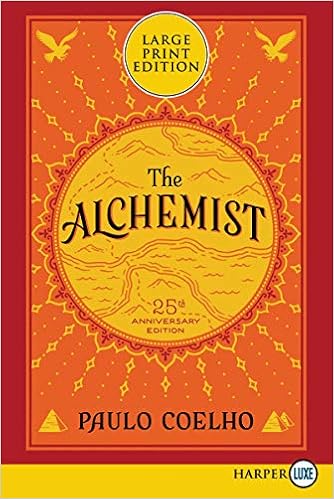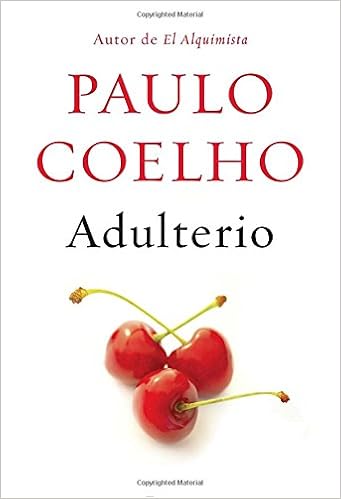
Veronika Decides to Die: A Novel of Redemption
Paperback – Special Edition, August 3, 2021
Description
"Girl Interrupted meets The Catcher in the Rye...you'll appreciate Veronika's sensual nihilism."--Mademoiselle Twenty-four-year-old Veronika seems to have everything—youth and beauty, boyfriends and a loving family, a fulfilling job. But something is missing in her life. So, one cold November morning, she takes a handful of sleeping pills expecting never to wake up. But she does—at a mental hospital where she is told that she has only days to live. Inspired by events in Coelho’s own life, Veronika Decides to Die questions the meaning of madness and celebrates individuals who do not fit into patterns society considers to be normal. Bold and illuminating, it is a dazzling portrait of a young woman at the crossroads of despair and liberation, and a poetic, exuberant appreciation of each day as a renewed opportunity. One of the most influential writers of our time, Paulo Coelho is the author of thirty international bestsellers, including The Alchemist, Brida, Veronika Decides to Die, Manual of the Warrior of Light , and Eleven Minutes . He is a member of the Brazilian Academy of Letters and a United Nations Messenger of Peace. Paulo is the recipient of 115 international prizes and awards, among them, the Chevalier de l'Ordre National de la Légion d'Honneur (Legion of Honor). Born in Rio de Janeiro in 1947, he soon discovered his vocation for writing. He worked as a director, theater actor, songwriter, and journalist. In 1986, a special meeting led him to make the pilgrimage to Saint James Compostela (in Spain). The Road to Santiago was not only a common pilgrimage but a turning point in his existence. A year later, he wrote The Pilgrimage , an autobiographical novel that is considered the beginning of his literary career. He lives in Geneva, Switzerland. Excerpt. © Reprinted by permission. All rights reserved. Veronika Decides to Die A Novel of Redemption By Paulo Coelho HarperCollins Publishers, Inc. Copyright ©2006 Paulo CoelhoAll right reserved. ISBN: 0061124265 Chapter One On November 11, 1997, Veronika decided that the moment to kill herself had-at last!-arrived. She carefully cleaned the room that she rented in a convent, turned off the heat, brushed her teeth, and lay down. She picked up the four packs of sleeping pills from her bedside table. Instead of crushing them and mixing them with water, she decided to take them one by one, because there is always a gap between intention and action, and she wanted to feel free to turn back halfway. With each pill she swallowed, however, she felt more convinced: After five minutes the packs were empty. Since she didn't know exactly how long it would take her to lose consciousness, she had placed on the bed that month's issue of a French magazine, Homme, which had just arrived in the library where she worked. She had no particular interest in computer science, but, as she leafed through the magazine, she came across an article about a computer game (one of those CD-ROMS) created by Paulo Coelho, a Brazilian writer she had happened to meet at a lecture in the café at the Grand Union Hotel. They had exchanged a few words, and she had ended up being invited by his publisher to join them for supper. There were a lot of people there, though, and they hadn't had a chance to talk in depth about anything. The fact that she had met the author led her to think that he was part of her world, and that reading an article about his work could help pass the time. While she was waiting for death, Veronika started reading about computer science, a subject in which she was not the least bit interested, but then that was in keeping with what she had done all her life, always looking for the easy option, for whatever was nearest at hand. Like that magazine, for example. To her surprise, though, the first line of text shook her out of her natural passivity (the tranquilizers had not yet dissolved in her stomach, but Veronika was by nature passive), and, for the first time in her life, it made her ponder the truth of a saying that was very fashionable among her friends: "Nothing in this world happens by chance." Why that first line, at precisely the moment when she had begun to die? What was the hidden message she saw before her, assuming there are such things as hidden messages rather than mere coincidences? Underneath an illustration of the computer game, the journalist began his article by asking: "Where is Slovenia?" Honestly, she thought, no one ever knows where Slovenia is. But Slovenia existed nonetheless, and it was outside, inside, in the mountains around her and in the square she was looking out at: Slovenia was her country. She put the magazine to one side; there was no point now in getting indignant with a world that knew absolutely nothing about the Slovenes; her nation's honor no longer concerned her. It was time to feel proud of herself, to recognize that she had been able to do this, that she had finally had the courage and was leaving this life: What joy! Also she was doing it as she had always dreamed she would-by taking sleeping pills, which leave no mark. Veronika had been trying to get hold of the pills for nearly six months. Thinking that she would never manage it, she had even considered slashing her wrists. It didn't matter that the room would end up awash in blood, and the nuns would be left feeling confused and troubled, for suicide demands that people think of themselves first and of others later. She was prepared to do all she could so that her death would cause as little upset as possible, but if slashing her wrists was the only way, then she had no option-and the nuns could clean up the room and quickly forget the whole story, otherwise they would find it hard to rent out the room again. We may live at the end of the twentieth century, but people still believe in ghosts. Obviously she could have thrown herself off one of the few tall buildings in Ljubljana, but what about the further suffering a fall from such a height would cause her parents? Apart from the shock of learning that their daughter had died, they would also have to identify a disfigured corpse; no, that was a worse solution than bleeding to death, because it would leave indelible marks on two people who only wanted the best for her. They would get used to their daughter's death eventually. But it must be impossible to forget a shattered skull. Shooting, jumping off a high building, hanging, none of these options suited her feminine nature. Women, when they kill themselves, choose far more romantic methods-like slashing their wrists or taking an overdose of sleeping pills. Abandoned princesses and Hollywood actresses have provided numerous examples of this. Veronika knew that life was always a matter of waiting for the right moment to act. And so it proved to be the case. In response to her complaints that she could no longer sleep at night, two friends of hers managed to get hold of two packs each of a powerful drug, used by musicians at a local nightclub. Veronika left the four packs on her bedside table for a week, courting approaching death and saying good-bye-entirely unsentimentally-to what people called life. Now she was there, glad she had gone all the way, and bored because she didn't know what to do with the little time that was left to her. She thought again about the absurd question she had just read. How could an article about computers begin with such an idiotic opening line: "Where is Slovenia?" Having nothing more interesting to do, she decided to read the whole article, and she learned that the said computer game had been made in Slovenia-that strange country that no one seemed quite able to place, except the people who lived there-because it was a cheap source of labor. A few months before, when the product was launched, the French manufacturer had given a party for journalists from all over the world in a castle in Vled. Veronika remembered reading something about the party; which had been quite an event in the city, not just because the castle had been redecorated in order to match as closely as possible the medieval atmosphere of the CD-ROM, but because of the controversy in the local press: Journalists from Germany, France, Britain, Italy and Spain had been invited, but not a single Slovene... Continues... Excerpted from Veronika Decides to Die by Paulo Coelho Copyright ©2006 by Paulo Coelho. Excerpted by permission. All rights reserved. No part of this excerpt may be reproduced or reprinted without permission in writing from the publisher.Excerpts are provided by Dial-A-Book Inc. solely for the personal use of visitors to this web site. Read more
Features & Highlights
- “A highly original, moving, and ultimately life-affirming book.” –
- Sunday Mirror
- (London)
- Twenty-four-year-old Veronika seems to have everything – youth and beauty, boyfriends and a loving family, a fulfilling job. But something is missing in her life. So, one cold November morning. She takes a handful of sleeping pills expecting to never wake up. But she does—at a mental hospital where she is told that she has only days to live.
- Inspired by events in Coelho’s own life,
- Veronika Decides to Die
- questions the meaning of madness and celebrates individuals who do not fit into patterns society considers to be normal. Bold and illuminating, it is a dazzling portrait of a young woman at the crossroads of despair and liberation, and a poetic, exuberant appreciation of each day as a renewed opportunity.





